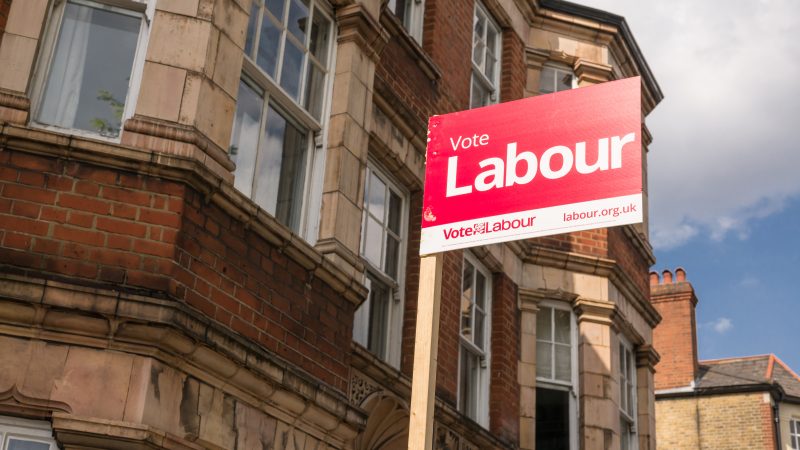
Jon Cruddas argued that the new authoritarian tendency in the leadership threatens the Liberal tradition within Labour. The authoritarianism is real, but Labour never had a pro Liberal tradition. Blair’s inclination for a Lib-Lab turn from 1995-97 was a personal drive, and Labour has never formed a coalition save in wartime.
There are many parallels between the early 1990s and now
Gordon Brown’s call for a written constitution in July 2007 died within a week. Where Jon is right historically is to see parallels with the early 1990s and to argue that “Labour’s 1992 defeat meant many modernizers remained fearful that the party might never again secure an outright victory”. As he says, Blair began to woo Paddy Ashdown’s Lib Dems.
In the middle 1990s it was sensible to take this tack. The John Major government of 1992-97 was such a disaster, it is easy to forget the earthquake which was the 1992 result. Which political leader secured the highest vote in British history? Attlee? Blair? Thatcher? Boris Johnson? No – John Major is the only leader to to secure over 14 million votes. When he had done this there were solid reasons to think Labour might never win again.
These fears revived after the 2019 election drubbing. However the solution favoured in LOTO is no longer any form of progressive alliance. The aim is a working majority, which needs a greater swing since the Second World war. Logically this should involve a broad alliance with a broad appeal to harvest the maximum number of voters, but this is not the project LOTO is engaged in.
The leadership’s current strategy is appeasing Tories
The key to success from the LOTO perspective is clearly appeasing Tories. The lesson they take from 2019 is that the hard left and the soft left which must be marginalized while the promises of avoiding factionalism can be forgotten. Any commitment that might annoy the Daily Mail must be removed.
While Starmer in his early soft left phase of leadership advocated a data driven strategy, data is not to be taken on board. Thus while Corbyn himself was massively unpopular by 2019, it is a simple fact that Corbyn was more popular with voters than either Brown or Miliband – and the key for electoral strategy is that the Red Wall seats must be prioritized, though Labour won the so called Red Wall seats in 2010, 2015 and 2017 and lost all three elections.
Gordon Brown secured the lowest vote share for Labour since 1922 at 29%. Miliband failed five years later with 30.4% and lost Scotland, losing 40 seats. He had been warned by Gerry Hassan and Eric Shaw years earlier that this would happen, in their excellent book The Strange Death of Labour Scotland.
There is no indication Miliband took any notice, since he had ceased to listen to soft left voices and listened only to those hard right factionalists who believed in trying to get support from the Tory press. This is once again the story.
But the key to electoral success is broad appeal
It cannot be said too often that while Corbyn was unpopular, Corbynism was not. In 2017 Labour got a 40% vote share and in 2019 he outpolled both Miliband and Brown with 32.1%.vote share. This is not enough and has to be vastly increased, but the key to electoral success is having a broad appeal to a wide range of voters.
Starmer appears to be assuming that any voters left of centre can be marginalized as they have nowhere to go. This was part of the reason for Blair’s strategy in 1997 as the need to reduce the Tory vote could be met by increasing the Lib Dem vote. This was not unpopular. Perhaps it could be repeated in 2024, but currently the keynote is a Labour majority without third party support.
Jon Cruddas is right to argue that there is a civil libertarian current in Labour’s tradition and it is important to defend this against what he argues is a current “all about state capture and factional control”.
But given the top priority is winning the next election, it has also to be said that appeasing the Tories has a very obvious downside. Starmerism gives little reason to vote Labour and membership is dropping, as it did under Blair. The increasing input of money from the rich is justified by election factors, but if the Labour brand becomes little different from the Tory one, not only is the risk of Labour voters going to other parties closer to their wishes increased, with issues of principle like civil liberties increasingly vital, but a new and ominous danger intensifies.
Labour cannot alienate its own people
If there is little difference between Labour and the Conservative parties, why should Tory voters bother to switch? The ruthless Leninst approach currently developing will not merely deter Labour voters, but can fail to impress Tories. The Labour approach has to be more than simply “if you can’t beat them, join them”.
The hard left has not taken much to be marginalized, it marginalized itself with the political inadequacies of LOTO when Corbyn occupied the office. When the softer left is under attack, and the treatment of Jamie Driscoll and perfectly satisfactory parliamentary candidates are blocked from selections in a mechanical process, the decline in membership and local activity will accelerate.
Jon Cruddas is right to argue a small Leninst faction will not be able to deal with the crises the next government will face. The more immediate question, despite the opinion poll leads, is whether that government will be formed by Labour.




More from LabourList
‘Labour must confront the crisis of first past the post before it’s too late’
Unite to debate affiliation with Labour Party at conference next year
Miliband tops LabourList Cabinet league table, with gender divide in PM approval